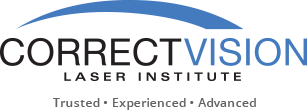How Do Seasonal Allergies Affect Eye Health?
Seasonal allergic conjunctivitis (SAC) is a common condition that pops up in spring and summer when pollen levels are high. This irritating eye problem causes multiple symptoms that make it hard to enjoy the beauty of the season, but it can be treated with lifestyle modifications and simple remedies.
Common Triggers for Seasonal Allergies
Pollen is the main culprit behind eye allergy symptoms. Whether it’s from trees, grasses, weeds or brightly blooming flowers, this tiny particle can get stuck in your eyes and prompt your immune system to launch an attack. When levels are high, pollen can collect inside your house or settle on your car, making symptoms worse. Some people also suffer from indoor allergies such as pet dander, mold and dust, all of which may cause additional discomfort.
Seasonal Allergies and Eye Symptoms
If you suffer from indoor or seasonal allergies, you are familiar with the itching, redness, watering and burning sensations that come along every season. In more severe cases, you may develop a condition similar to pink eye.
These symptoms arise when your body mistakes pollen for a harmful invader. Seasonal Allergies are mediated by a compound called IgE, which causes mast cells in your eyes to go on the alert, triggering the release of histamine and the appearance of subsequent symptoms. Over 35 million people in the U.S. suffer from these types of allergic reactions every year.
Seasonal Allergies and Dry Eye
In a study published in April 2015, Anat Galor, M.D., and her colleagues found that seasonal allergens may also be linked to dry eye. Affecting 20 percent of women and 10 percent of men in the U.S., dry eye manifests with symptoms such as burning, irritation and blurred vision. Galor’s study showed a correlation between peak times of year for allergies and an increase in diagnoses of dry eye. This potential link may be able to help doctors anticipate seasonal cases of dry eye and prescribe appropriate treatments for those at risk for developing the condition.
Preventing Allergic Reactions in to Seasonal Allergies the Eyes
Taking proactive measures during allergy season can reduce your chances of suffering from symptoms. Invest in protective eyewear to use when working outside or cleaning indoors to prevent pollen and other allergens from reaching the surface of your eyes. Inside, use an air filter to remove particles in the summer and a humidifier to keep the atmosphere moist in the winter. Shut the windows and use an air conditioner during peak pollen times both at home and in the car.
When symptoms are severe, over-the-counter eye drops or oral antihistamine medications may help. Some seasonal allergy sufferers also find that natural histamine modulators such as quercetin are able to ameliorate symptoms.
If you suffer from SAC and it’s affecting your quality of life, talk with your eye doctor or your primary care provider to determine the best treatment for your symptoms. Severe SAC may require prescription-strength eye drops or medications to keep it under control until pollen levels drop with cooler weather.
Want to learn more about how seasonal allergies can affect your eye health?
CorrectVision Laser Institute is one of Florida’s most advanced practices for vision impairments with extensive experience in LASIK. Our goal is to open your eyes to the world of great vision by offering unparalleled expertise and the most advanced technology available.
Contact us today for a consultation with one of our South Florida eye specialists, located in Hollywood, Weston and Pembroke Pines!


